The Buzz on Boiler Bee Honey
"Idon’t know any place else where I could have this kind of hands-on experience," Alyson McGovern, a sophomore in food science, said. “This is why I came to Purdue.”
McGovern is leading a collaborative project between the Departments of Food Science and Entomology, which is taking honey produced by honey bees in the Purdue apiary and processing and bottling it in the food science Pilot Plant. The bottles of honey will soon be available for sale on campus at the Boilermaker Butcher Block for $5 a bottle. The proceeds will be funneled back into entomology and food science research.
With the assistance of Erik Kurdelak, manager of the Pilot Plant, and Brock Harpur, assistant professor of entomology, McGovern guided the project from the honey’s extraction to the bottling and labeling of the product. She was also involved in obtaining a certificate for wholesale.

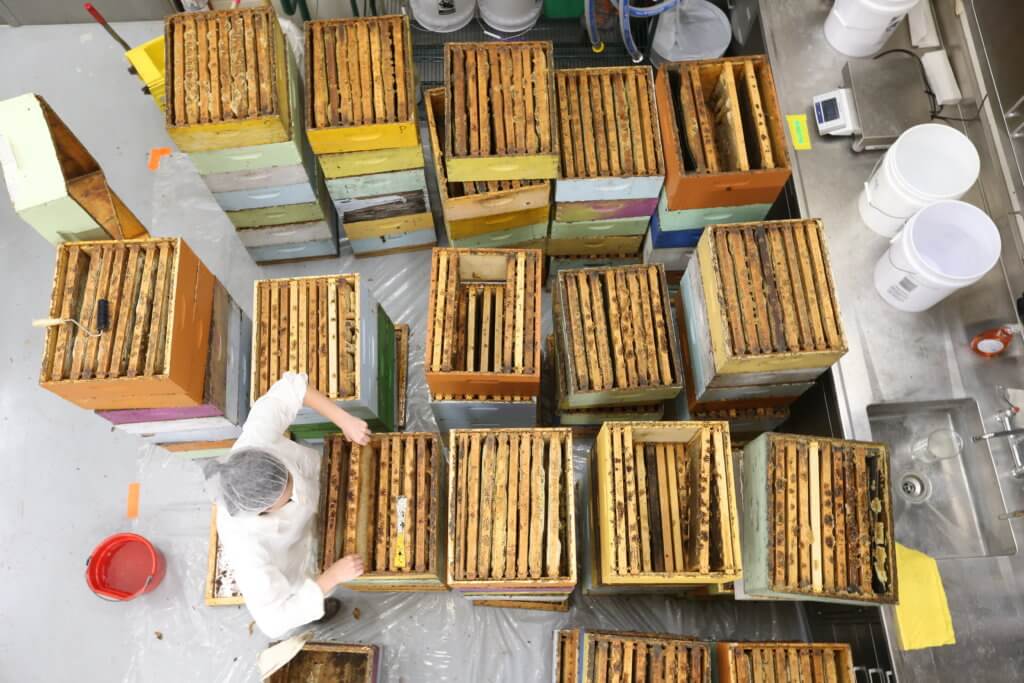
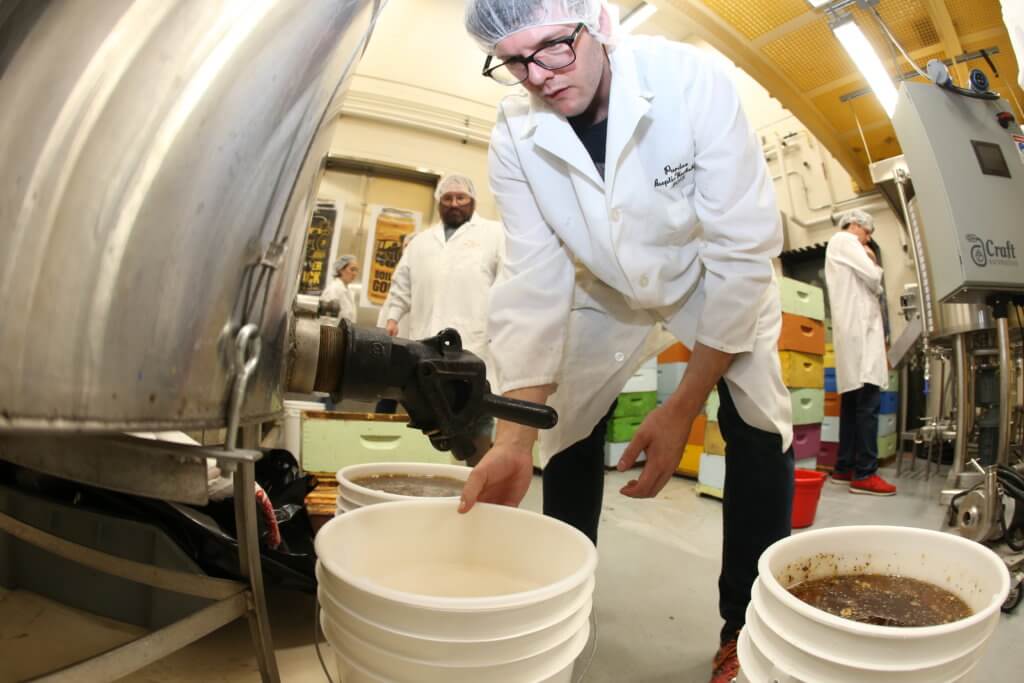
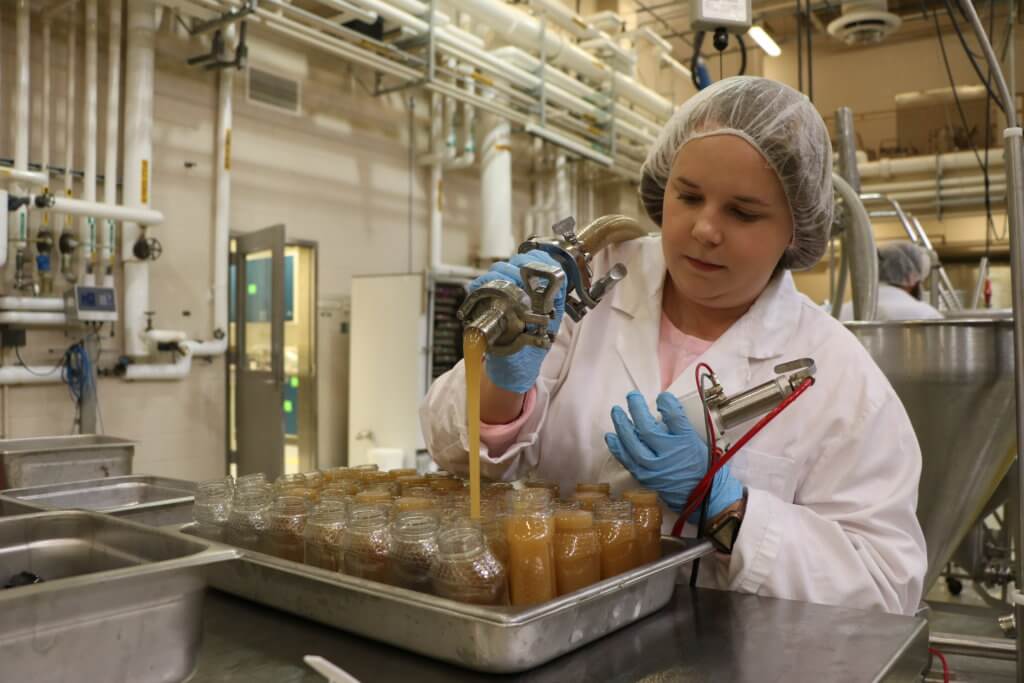
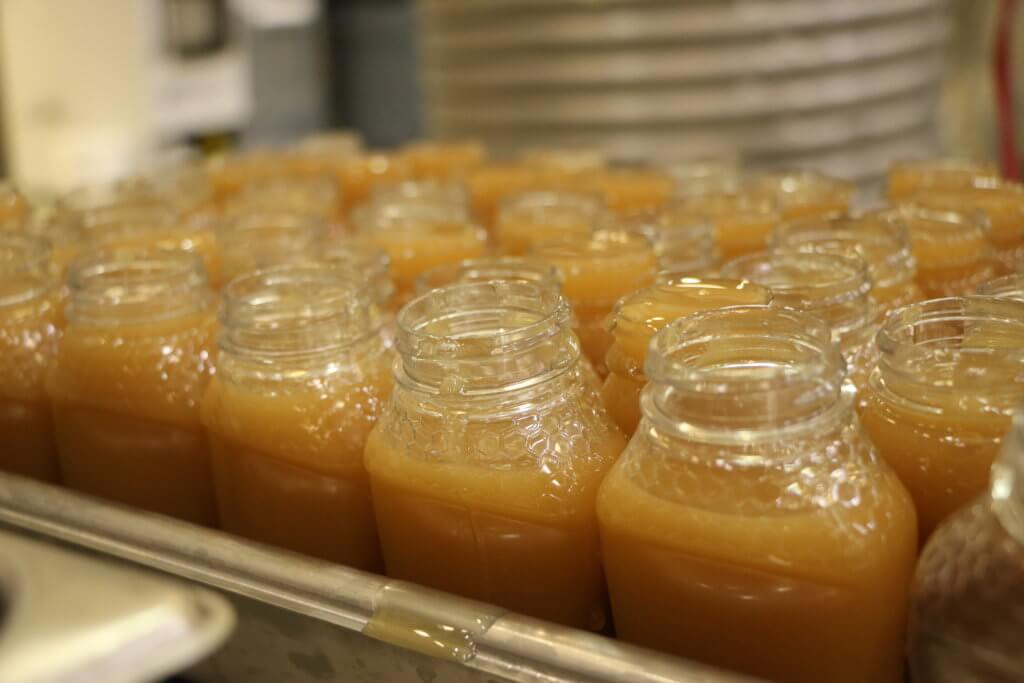
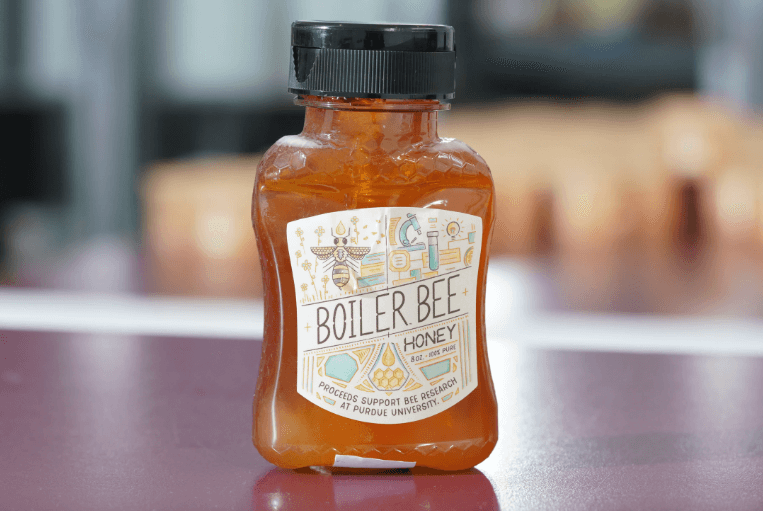
Students were essential in producing the honey, from caring for bees in the apiary to harvesting, processing and bottling the product in the Pilot Plant. McGovern (bottom left) can be seen filling bottles with the honey.
"This is a singular product."
- Erik Kurdelak
Kurdelak explained. “Any revenue generated will be split between the two departments and allocated for research, much like we do with revenue from Boiler Black and Boiler Gold beers. What’s really important is finding ways for students to acquire the experiences that will make them leaders in their fields. With this project, Alyson learned how to safely, legally and efficiently take a product from a raw ingredient to the retail shelf.”
Alyson added that while she knew the food science program at Purdue offered hands-on learning, this project far exceeded her expectations.
“The experience has been invaluable in terms of knowledge gained and in terms of building my portfolio,” McGovern continued. “When I’m applying for jobs I’m going to have a physical product I can point to that I made happen. I might even take it to my interviews and put it on the table.”
The nearly 35,000 ounces of honey produced roughly 3,000 bottles.
“What a fun way to highlight the collaborative work that can take place and does take place every day at Purdue,” Harpur said. “It’s also a great means to raise money to further develop our research and extension programs on bees and other pollinators.”
The bees in the Purdue apiary feed on wildflowers, which gives the honey a richer taste than clover honey.
“They take a high level of care with the bees in the apiary, from the quality and type of flowers to the care of the bees,” Kurdelak continued. “And, of course, we have taken great care in processing the honey. This is a singular product.”






